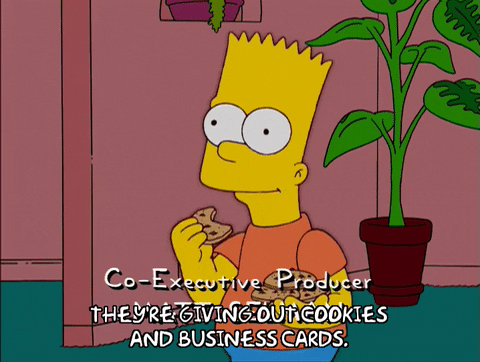I recently attended a reunion event for my graduate program, which involved information sessions facilitated by former graduates.
I was debating attending a panel session about career progression or just socializing with classmates when a former faculty member recommended I attend a session on retirement. I expressed my doubt of the session’s applicability for me, but the faculty member assured me it would be worthwhile. Content aside, they said any chance you get to hear a lecture or presentation from Rich Feller, you take it. So, off I went to a session titled, “Retirement is a Dirty Word: Why it Doesn’t Work and May Kill You.”
The faculty member was right. Rich Feller is an energetic, charismatic, and personable presenter who effortlessly draws on his rich body of knowledge and experience to engage his audience on a topic. As with several other pillars of the profession I’d walked amongst that weekend, I felt proud to be associated with him by virtue of our program. I took notes on his content, sure, but also the way in which he engaged his audience. He seemingly did it all: visual content, audio clips, physical movement, handouts, individual and group activities, and setting aside time for group reflection on a personal level.
I had expected the presentation to be related to financial planning or perhaps sharing advice from fellow higher ed retirees. Instead, there was a much more proactive and universally applicable theme of planning and preparing for what comes next in life, whether that’s retiring, planning for a promotion, furthering your education, expanding your family, or picking up new hobbies. While Feller doesn’t like the word retire, he cautioned that one should not retire from something, retire to something. This message applies to anyone, as we all navigate transitions in our lives. Feller explained, “No one can go back and make a brand new start, but anyone can start from now and make a brand new end.”
This idea of intentionality is important. I care about setting myself up for success through personal and professional endeavors, while also caring about the livelihood of loved ones. This care and investment is what brought my family across country for a weekend alumni event. It’s what encouraged me to trust that faculty member and attend a session seemingly not relevant to me. It’s even what motivated me to reach out to Presence to share my appreciation for their thought leadership and express my desire to add to their message.
Putting the specifics of my story aside, there were four takeaways that stuck with me and are worth sharing from the experience.
1. Invest in yourself and the relationships important to you
You only have so much energy, attention, and time to allot during your waking hours. Be sure to practice self-care, however that may look for you. We can’t always control situations and be operating at 100% to best serve others — students, colleagues, contribute to a project — but we can reward ourselves, set limits, and plan to operate at a level that won’t cause more harm or further run us down.
Because you can’t even give yourself enough time or energy, be more intentional with how you invest in the people around you. Seek out and make time for those who give you life and are important to you. Don’t stress about making everyone happy and certainly don’t spend more time stressing about anyone who isn’t important to you. Respect folks and do what you need to do in your job, but don’t waste negative or anxious energy on people or situations that aren’t worth it.
2. Know your goals and have an intentional plan to work towards them
Speaking of being intentional in directing your energy, look to have some general goals or a future state with which you are working. I’ve never been a big goal person myself; as such, I look to have a general path or desired future state in mind. Along the way, I might set short-term goals or tasks to specifically accomplish, but I give myself some freedom to wind my way along my path forward.
Whether you have a desired state like me or have specific goals in mind, you should have an actionable plan to get from one point to another. Whether it’s advancing your career, planning a program, or looking to push a student to meet an academic goal, set guideposts and checkpoints for yourself. This helps not only gauge your progress and give you small wins along the way, it also gives you natural reflection points to pause and make sure you’re progressing how and to where you want. Where and when needed, recalibrate yourself or your framework to get where you want to go.
It’s important to know sometimes you don’t have much a choice here, as your office, department, division, or role might require you to set goals in a particular way or within a rigid framework. In those instances, look to do the best you can with the situation. There likely may be some goals or targets you aren’t as passionate or happy about, but there should be at least room for one personal or developmental goal of your choice.
Even if not, look to put in the extra effort for what you’re looking to achieve. As long as I did the requisite work, I’ve never had a boss force me to abandon a passion project. I’ve received cautions I’d burn myself out or I should be careful with my time, but it’s hard to justify telling someone to stop pursuing their passion when they’re meeting all the other deadlines and expectations. Besides, when you’re investing time in something you care about (taking care of yourself), it’ll show up one way or another in the rest of your work and generally has a positive overall impact.
3. Don’t be so narrowly focused you pass up beneficial opportunities just because they don’t seem relevant.
For me, this has to be considered if you’re setting goals. One of the reasons I’m apprehensive to set goals is that I’m worried I’ll become so invested or focused on those specific pieces that I will miss an opportunity passing by on the periphery. You never know when inspiration is going to strike or when an amazing opportunity might come your way, whether or not you are ready or even looking. I like to be ready and open to seize such situations.
Now, I’m not advocating only half-paying attention to your responsibilities in hopes or anticipation something else might come along. Stay productive, do your work, but follow your intuition if something strikes you as curious or interesting. Ask questions to learn more about a situation, a student’s interest, a colleague’s idea — you never know where it might take you (or them).
Even if it doesn’t materialize as a beneficial opportunity, it keeps you looking beyond your specific role, department, or routine perspective. Maybe it’s a committee you hear about. Or perhaps it’s a research interest for a particular faculty member or academic initiative going on — that’s not necessarily off-limits from you just because you’re a Student Affairs person, or vice versa. Keep your eyes forward, focused on your goal or desired state, but keep your ears open for opportunities of interests around you.
4. Utilize the rich and valuable support accessible to you (e.g., free online resources, mentoring through social or professional networks)
Despite some of the troubling things going on in the world today, it is a pretty remarkable time. Want to learn something (language, discipline, skill, perspective)? You’re just a web search away! Better than that, though, you more than likely have some immediately available resources (literature, events, people). That’s the beauty of working at an institution of higher learning, it’s an epicenter of information.
You have access to faculty, staff, and current/former students as a network. You also have professional organizations — specific to functional area or general for field or discipline. There are also amazing education-oriented partners who — whether you utilize their services or not — seek to engage with people in the field and share information through various mediums (like blogs).

Sometimes people can be worried to speak up, ask questions, or seek help. All I can say is, the sooner you get over that, the better. I have no problem admitting to someone I don’t know what something means, asking for more information, or requesting additional support on a given project. Doing so demonstrates self-awareness and a desire to further understand – nothing wrong with either of those. Worst case scenario: you receive a dry or hurried explanation on something. Best case scenario: you learn about something new of interest or that impacts your work, you establish a new connection with someone, and/or you show to other people around you that it’s ok to ask questions and seek to understand (and be understood).
This may all boil down to intentionality. Guarding and guiding your intentions as you navigate relationships, plan for your future, consider available opportunities, and take advantage of resources available to you. While not trying to be morbid, Feller reiterated the point we only have so much time before we pass. His presentation kept asking how you would use that time, what you would do, and if that’s the best thing to be doing for you. Could you be intentional in all aspects of your life and what might that look like?
If you’re interested in learning more about the topic Feller discussed, or want to take advantage of some really cool (and free resources) check out the Life Reimagined project from AARP. The site has activities and resources to support your personal well-being, career, and relationships (and no, you don’t have to be a member of AARP or a certain age to benefit from it). To learn more about Feller himself, check out his website. Wherever you may be and wherever you intend to go, I wish you success and progress on your journey!





